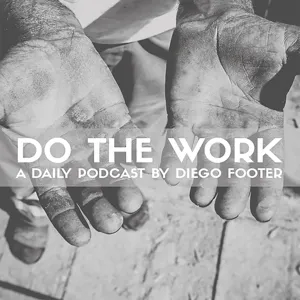Podcast Summary
Building community connections brings hope and support: Embrace new experiences and connections for joy and growth, whether through community building, gaming, or family travel.
Even in uncertain times, building strong community connections can bring hope and support. Neighbor to Neighbor, a California volunteer network, emphasizes the importance of relying on neighbors for social bonds and disaster preparedness. Meanwhile, in a different context, the allure of the Godfather slot game at chumpacasino.com offers an escape into a world of power and luck. Elsewhere, the Hyundai Santa Fe invites families to embark on adventures and explore new places. In the historical realm, the failed Munich Beer Hall Putsch led by Hitler serves as a reminder of the importance of vigilance against those who seek power through divisive means. Ultimately, whether it's through community building, gaming, or family travel, embracing new experiences and connections can bring joy and growth.
Nazi raid on Munich newspaper headquarters: During the Munich Beer Hall Putsch, Nazis raided a local newspaper, destroyed property, and targeted Jews and perceived enemies, showcasing their violent tactics and disregard for human life.
During the Munich Beer Hall Putsch in 1923, Nazi stormtroopers raided the headquarters of a local newspaper, destroying property and looting valuables. They even went as far as to break into the editor's home, threatening his wife and young daughter. Hitler, who was involved in the putsch, reportedly wanted to protect the printing presses due to their monetary value. Simultaneously, other Nazi groups were targeting Jews and other perceived enemies, leading to numerous arrests, beatings, and kidnappings. Despite Hitler's later denial of condoning violence against Jews, the fact remains that the Nazis engaged in widespread violence and chaos during this event. Ultimately, the putsch failed due to poor planning, miscommunication, and the arrival of the Bavarian army. The incident showcases the brutal tactics and disregard for human life that would become synonymous with the Nazi regime.
Tension between Hitler and Ludendorff during Munich Beer Hall Putsch: Hitler's anger and desire to fight contrasted with Ludendorff's calculated approach during the Munich Beer Hall Putsch, resulting in violent clashes with police and ultimately an unsuccessful power grab.
The tension between Hitler and Ludendorff during the Munich Beer Hall Putsch was palpable. While Hitler was consumed by anger and a desire to fight, Ludendorff remained calculated and focused on rallying the people to their cause. Despite having fewer forces, they marched through Munich, intending to gain popular support and convince their opponents to abandon their resistance. However, the situation took a violent turn when the Nazis clashed with police officers, resulting in deaths and injuries on both sides. This early success did not last long, and the outcome of the putsch was ultimately unsuccessful. The incident showcased the extreme measures the Nazis were willing to take to gain power and the dangerous consequences that ensued.
Hitler didn't bravely march through gunfire during Beer Hall Putsch: Hitler hid and fled during the failed Nazi uprising, but his popularity and media misperceptions allowed him to avoid severe punishment
Despite popular myths, Hitler did not bravely march unharmed through gunfire during the Beer Hall Putsch. Instead, he dove for cover and fled when it became clear the Nazis were losing. Hitler's popularity and the ambivalence of many towards the government's actions allowed him to avoid severe punishment. The press, particularly in the US, downplayed the seriousness of the putsch and depicted Hitler as a bumbling sidekick. Conversely, left-wing papers saw the Bavarian government as the true villain for suppressing a popular uprising. This misperception of the danger posed by Hitler would continue to grow in the coming months.
The leniency shown during Hitler's trial allowed his political career to continue: The justice system's failure to hold Hitler accountable for his actions during the Munich beer hall putsch was a turning point that allowed the Nazis to rise to power in Germany, emphasizing the importance of an impartial and effective justice system in preventing extremist leaders from gaining power.
The leniency shown by the justice system towards Hitler during his trial in 1924 played a significant role in allowing his political career to continue. The presiding judge, George Neidhart, had a bias towards the far right and showed favoritism towards right-wing defendants in general. This leniency allowed Hitler to escape with a light sentence and kept his ambitions alive. The justice system's failure to hold Hitler accountable for his actions at the Munich beer hall putsch was a turning point that allowed the Nazis to rise to power in Germany. The story of Hitler's trial is a reminder of the importance of an impartial and effective justice system in preventing the rise of extremist leaders. It's a chilling reminder that even when a terrible idea like a putsch is poorly planned and doomed from the start, the actions of individuals in positions of power can have far-reaching consequences.
Unexpected opportunities and the power of fairness: Finding joy in simple things and experiencing unexpected opportunities can make a big difference. Fairness in the justice system is crucial to prevent historical patterns of targeting certain groups.
Sometimes finding joy in simple things, like playing free games on Chumba Casino, can make all the difference in our day. Meanwhile, in more serious news, a study by the UK Guardian revealed that left-wing demonstrators are disproportionately targeted with police force, even during peaceful protests. This historical pattern is reminiscent of the unjust legal system in Nazi Germany, although not as extreme. In a pivotal moment in history, a judge's decision to let Adolf Hitler speak for hours during his trial in 1923 significantly boosted his public profile, turning an unknown figure into an international figure. These examples highlight the power of unexpected opportunities and the importance of fairness in the justice system.
The Beer Hall Putsch trial: Suppression of sensitive information and biased prosecution: The Beer Hall Putsch trial in 1923 allowed Hitler to present a false image, obscuring his true intentions and actions, emphasizing the need for transparency and impartiality in legal proceedings.
During the trial of Adolf Hitler and the German leaders following the Beer Hall Putsch in 1923, sensitive information was suppressed and some members of the prosecution were sympathetic to Hitler's cause. This allowed Hitler to present himself as a passionate and honest leader, despite his use of criminal means to overthrow the government. The international community was misled, and the true extent of Hitler's intentions and actions were not fully revealed. This incident highlights the importance of transparency and impartiality in legal proceedings, especially when dealing with potentially dangerous individuals. The failure to hold Hitler accountable for his actions at this early stage contributed to the rise of the Nazi regime and the devastating consequences that followed.
Hitler's lenient trial in 1924: Hitler's lenient trial allowed him to write Mein Kampf, solidifying political power, serving as an advertisement for the Nazi party, and having terrifying implications for the future.
History remembers the unusual leniency shown during Adolf Hitler's trial in 1924. Despite his role in a failed coup attempt that resulted in numerous deaths, Hitler and most of his co-defendants received lenient sentences, with some even being elected to the Reichstag shortly after. The judge's justification for the lenient sentences was Hitler's "purely patriotic, noble, and unselfish motive" of wanting to be the supreme ruler of all Germany. This decision, made in a time when fascism was on the rise, had terrifying implications. Hitler was sent to a luxury prison, where he was given favorable conditions to write Mein Kampf, further solidifying his political power. The trial effectively served as an advertisement for the Nazi party, demonstrating how the actions of the past can have far-reaching consequences.
Unexpected experiences and environments lead to growth and creativity: Unexpected situations can lead to personal growth, new ideas, and endless opportunities for fun and discovery
Unexpected experiences and environments can lead to unexpected outcomes. Whether it's spending time in prison with friends and making the most of it, or discovering a new game that constantly brings something new to the table, the unexpected can lead to growth, creativity, and even the development of influential ideas. For example, Hitler's time in Landsberg prison gave him the space and confidence to write Mein Kampf, which went on to shape the course of history. Similarly, Monopoly Go offers endless opportunities for fun and discovery, keeping players engaged and coming back for more. In a world that can sometimes feel uncertain and disconnected, finding joy and connection in the unexpected can be a powerful force.
Leniency towards Hitler's first power grab emboldened him: The leniency shown towards Hitler's initial power grab allowed him to become more aggressive, ultimately leading to his dictatorship. Accountability for challenging democratic institutions is crucial.
The leniency shown towards Hitler's first attempt to seize power in Germany, the Beer Hall Putsch, contributed significantly to his rise to dictatorship. The lack of severe consequences for his actions emboldened him, leading to more aggressive attempts to gain control. This incident underscores the importance of holding accountable those who challenge democratic institutions. The discussion also touched upon the upcoming exploration of anti-fascism in Germany during the miniseries. Robert Plunket was plugged for his various projects, including his book "The Brief History of Vice" and podcasts "It Could Happen Here," "Uprising," and "Behind the Police." The artwork for the podcast, featuring a fire, was jokingly criticized for inaccuracy but appreciated for its creativity. An intriguing idea for a logo was suggested, inspired by the Friends scene at the fountain at the US Capitol.
Art as a medium for history, connection, and community: Art can convey history, bring people together, and promote self-care through various formats. Community initiatives like Neighbor to Neighbor foster social bonds and emergency preparedness. Companies like Chumba Casino, Lazarus Naturals, and BetterHelp provide entertainment, high-quality products, and mental health support respectively.
Art, no matter the format or size, can serve as a powerful medium for sharing history and bringing people together. During a discussion, it was emphasized that artwork, even if it's free, can convey important messages, such as the history behind significant events like the capitol insurrection. Neighbor to Neighbor, a California volunteers network, was introduced as an example of how people in a community can come together to create meaningful social bonds and prepare for emergencies. Chumba Casino was highlighted as a source of entertainment and brightness in everyday life. Lazarus Naturals was praised for its transparency and commitment to producing high-quality CBD products. Lastly, BetterHelp was presented as an accessible and affordable solution for mental health support. Overall, the conversation underscored the importance of community, connection, and self-care.





